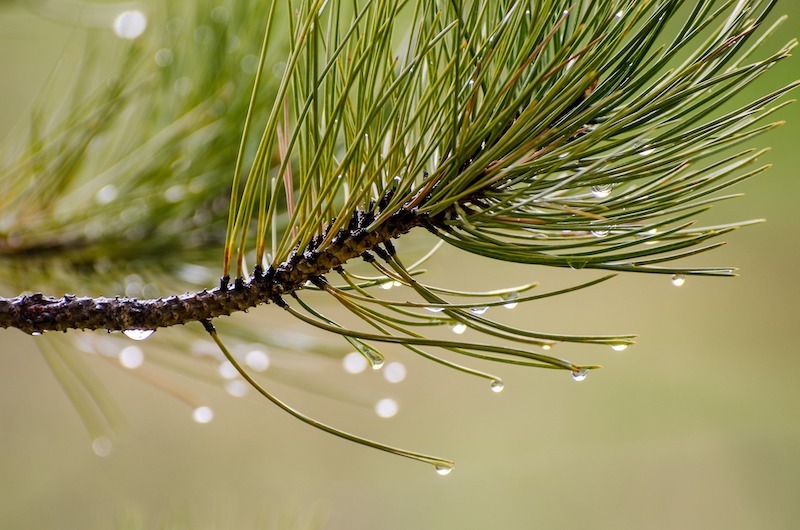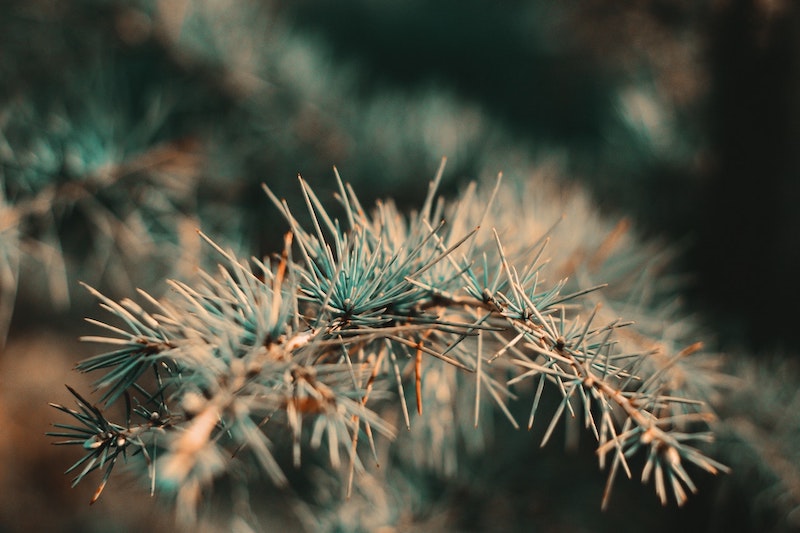Pine trees, Pinus sp., are common trees in home landscapes. These popular plants are also fairly low maintenance when it comes to water. Pine trees are well adapted to drought conditions, and will often thrive from precipitation alone. Adequate moisture levels ensure that pine trees develop and maintain healthy root systems while providing year-long interest in the garden.

How To Tell If Pine Trees Need Water
Although pine trees are fairly drought tolerant, many will need to be watered if there is a lack of precipitation. Check for dry, cracked soil and dry, brown, brittle, or wilting needles. To check if your pine tree needs water, take a needle off of the tree and bend it. If it easily snaps in half, it is a good sign to water. Keep in mind that it is much easier to overwater pine trees than it is to underwater them. Overwatering pine trees can create anaerobic soil conditions that do not allow sufficient oxygen exchange. It can also invite several pests and diseases, particularly fungi and oomycetes that cause root rot. Symptoms of overwatering frequently mimic those of underwatering.

How Often To Water Pine Trees
Newly planted pine trees will need to be watered more frequently than established pine trees. Water your pine tree directly after planting. For the first 1-3 weeks after planting, water your pine tree every 1-2 days. Gradually reduce the frequency of watering for the next several weeks, working your way to watering just once per week for the following months. This watering schedule allows newly planted pine trees to develop strong, established root systems.
Most established pine trees will only need to be watered during extensive drought periods or when adding fertilizer to the soil. In climates where pine trees are native, precipitation usually provides enough water for these plants. It is important that established pine trees be watered in dry winters to prevent desiccation from freezing temperatures.
Pine trees growing in containers have different watering needs than those growing in the ground. Soil in containers will dry out quicker than soil in the ground. Water potted pine trees whenever the soil feels completely dry. Potted pine trees should be watered until the soil is evenly moist. Allow soil to dry out completely in between waterings.
Best Time To Water Pine Trees
Like many plants, pine trees should be watered in the morning. The cooler morning temperatures and less intense sunlight give the plants time to fully absorb the water. If they cannot be watered in the morning, early evening works well too. Pine trees should be watered in summer during periods of extreme heat and drought. Water pine trees as needed in winter when temperatures are above 40°F.
How to Water Pine Trees
Step 1 - Find the drip line
Look up at the canopy in the pine tree. Then, look at the ground directly under the circumference of the canopy – this is the drip line! This is the optimal place to start watering your tree. If you are watering a newly planted pine tree, the entire root ball will suffice.
Step 2 - Water the pine tree
Using a hose, apply water to various points around the drip line, for about 10-15 minutes each. A soaker hose attachment can help make this process less time consuming. Allow soil to dry before watering again.
Step 3 - Add mulch
Mulching helps to maintain moisture in the soil. Apply a few inches of wood-based mulch beneath the tree, spreading it out evenly to the drip line. Refrain from applying mulch against the trunk of the tree, otherwise known as volcano mulching. This type of mulching can damage the pine tree’s bark and vascular system while encouraging rot.
Pine Tree Watering Tips
- Water newly planted pine trees more frequently than established pine trees
- Water pine trees in the morning and during intense drought periods
- Apply water to the drip line
- Water before and during winter (>40°F) to prevent desiccation
- Use caution to prevent overwatering
 |
Lauren Youngcourt - Published 03-22-2023 |
